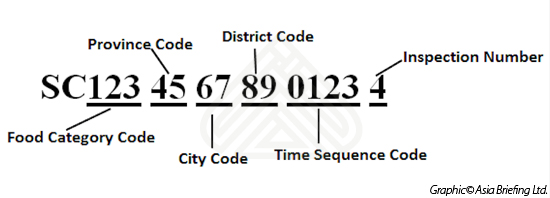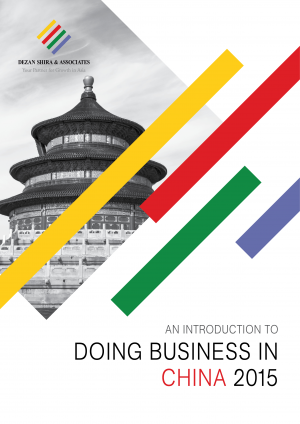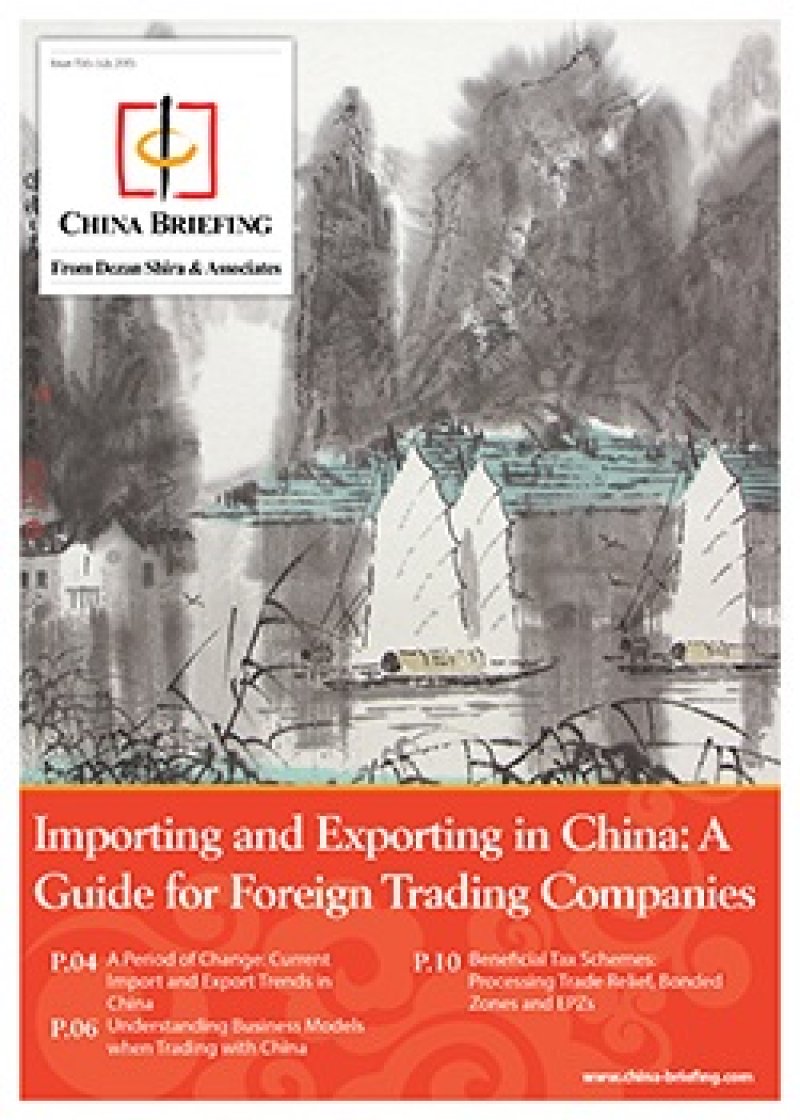China’s Food Industry: Understanding the New Two-in-One Business License
By Jake Liddle
According to regulations on food production licenses and food business licenses published by the State Food and Drug Administration (SFDA), as of October 1, catering and food distribution industries will be covered by one license.
Setting up a business in China requires a basic business license, but industry specific businesses such as food require a further license. Previously, there were three licenses: Food Production License, Catering License and Food Distribution License. Now, the Catering License and Food Distribution License have been combined following the State Food and Drug Administration’s system reformation last year, which unified the management system of food businesses. This makes for a more simple and accessible process for new food businesses to access the market.
The Food Safety Regulatory Branch of the Market Supervisory Bureau have stated that they have implemented relevant staff training, and as of next month will be issuing these new two-in-one catering and food distribution licenses to new food enterprises.
![]() RELATED: Business Advisory Services from Dezan Shira & Associates
RELATED: Business Advisory Services from Dezan Shira & Associates
Criteria for Investors
Though the licensing system has been streamlined, enterprises still need to be aware of the requirements there are in place for license application. The following is a brief of the basic criteria of a food business enterprise as stipulated in the Food Business License Regulations:
- Food business enterprises shall be equipped with food safety management personnel, and staff shall be trained and assessed accordingly;
- Maintain a strict food safety management system;
- Have sufficient food storage facilities, not located in an area susceptible to the contamination of cesspits, refuse centers or toilets, with the distance 25 meters or more;
- Be sufficiently equipped with facilities for disinfection, changing clothing, toilets, lighting, ventilation, corrosion, dust and pests, etc.;
- All equipment and facilities coming into direct contact with food shall: bear product quality certificates, be safe, non-toxic, odorless, anti-absorptive, corrosion-resistant and can withstand repeated cleaning and disinfection;
- Enterprises that operate via internet without a physical outlet shall have a physical place equipped with appropriate storage, equivalent to a physical outlet, and provide authorizing organizations with the means to log onto website of the applicant body for inspection.
The list of regulations also provide detailed criteria for special food enterprises (dealing with baby food, milk powder, medicinal food products, health foods and supplements), homemade food and drinks businesses, and frozen foods.
Food Production License
The Food Production License is not included in the State Food and Drug Administration’s license streamlining scheme, and has been expanded. The latest Food Business License Regulations has added clauses about food additives into the Food Production License Management Guide.
On August 30, the SFDA published a notice on implementing food production management, stipulating that use of the ‘QS’ license mark is to be discontinued. For products which still bear the QS license mark, sales are authorized to continue until the end date of October 1st 2018. The QS license mark is to be replaced by the SC (stands for “Sheng Chan 生产” in Chinese) license mark and a 14 digit license number, which will enable customers to view detailed information about the product.

Along with the launch of the new mark, the SFDA implemented a detailed food classification system. For example, the number “1” stands for food, “2” stands for food additives, “27” stands for health food and “29” stands for infant formula.
Opportunities for Foreign Investment
After numerous food safety scandals and growing worries about the environment and pollution, Chinese consumers are increasingly concerned with eating healthy, traceable and organic produce. According to Euromonitor International, domestic organic food sales saw a 35 percent growth in 2014. There is therefore huge potential for investment in China’s food industry, and with the latest licensing system, the market is considerably easier to navigate. More opportunities for foreign investment in China’s health food industry can be found here.
|
Asia Briefing Ltd. is a subsidiary of Dezan Shira & Associates. Dezan Shira is a specialist foreign direct investment practice, providing corporate establishment, business advisory, tax advisory and compliance, accounting, payroll, due diligence and financial review services to multinationals investing in China, Hong Kong, India, Vietnam, Singapore and the rest of ASEAN. For further information, please email china@dezshira.com or visit www.dezshira.com. Stay up to date with the latest business and investment trends in Asia by subscribing to our complimentary update service featuring news, commentary and regulatory insight. |
![]()
 An Introduction to Doing Business in China 2015
An Introduction to Doing Business in China 2015
Doing Business in China 2015 is designed to introduce the fundamentals of investing in China. Compiled by the professionals at Dezan Shira & Associates, this comprehensive guide is ideal not only for businesses looking to enter the Chinese market, but also for companies that already have a presence here and want to keep up-to-date with the most recent and relevant policy changes.
Importing and Exporting in China: a Guide for Trading Companies
In this issue of China Briefing, we discuss the latest import and export trends in China, and analyze the ways in which a foreign company in China can properly prepare for the import/export process. With import taxes and duties adding a significant cost burden, we explain how this system works in China, and highlight some of the tax incentives that the Chinese government has put in place to help stimulate trade.
Using China’s Free Trade & Double Tax Agreements
In this issue of China Briefing, we examine the role of Free Trade Agreements and the various regional blocs that China is either a member of or considering becoming so, as well as how these can be of significance to your China business. We also examine the role of Double Tax Treaties, provide a list of active agreements, and explain how to obtain the tax minimization benefits on offer.
- Previous Article How do you Position Premium Brands in China?
- Next Article Investing in China’s Heavy Lift Helicopter Market











